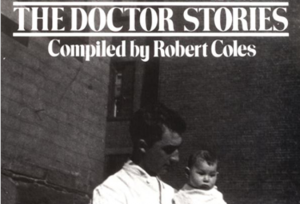About the Book Excerpt
In this chapter from late in his autobiography Williams focuses on his subjective experience in caring for patients. The unusual truthfulness of patients in need, their “coming to grips with the intimate conditions of their lives,” inspires him both personally and artistically, as a poet. The things that patients reveal about themselves and about the human condition not only keep him going as a physician; they are the stuff of poetry, the human truths that lie beneath the “dialectical clouds” we construct to protect ourselves from contact in everyday life. (From The Autobiography of William Carlos Williams, 1951). To read the chapter, “The Practice,” go to:http://books.google.com/books?id=fKTiW9GqI-8C&pg=PA356&lpg=PA356&dq=%22the+practice%22+william+carlos+williams+autobiography&source=bl&ots=UDG5BmT4kt&sig=Z_dTMg3G-YZxCIiuGjRCPjBz_UI&hl=en&ei=Z6t5TOD9PIOglAeTlb3sCw&sa=X&oi=book_result&ct=result&resnum=9&ved=0CEYQ6AEwCA#v=onepage&q&f=false
About the Writer
William Carlos Williams was born in Rutherford, New Jersey, in 1883. He began writing poetry while a student at Horace Mann High School, at which time he made the decision to become both a writer and a doctor. He received his M.D. from the University of Pennsylvania, where he met and befriended Ezra Pound. Pound became a great influence in Williams’ writing, and in 1913 arranged for the London publication of Williams’s second collection, The Tempers. Returning to Rutherford, where he sustained his medical practice throughout his life, Williams began publishing in small magazines and embarked on a prolific career as a poet, novelist, essayist, and playwright. Continuing to experiment with new techniques of meter and lineation, Williams sought to invent an entirely fresh—and singularly American—poetic, whose subject matter was centered on the everyday circumstances of life and the lives of common people. His major works include Kora in Hell (1920), Spring and All (1923), Pictures from Brueghel and Other Poems (1962), the five-volume epic Paterson (1963, 1992), and Imaginations (1970). Williams’s health began to decline after a heart attack in 1948 and a series of strokes, but he continued writing up until his death in New Jersey in 1963.






